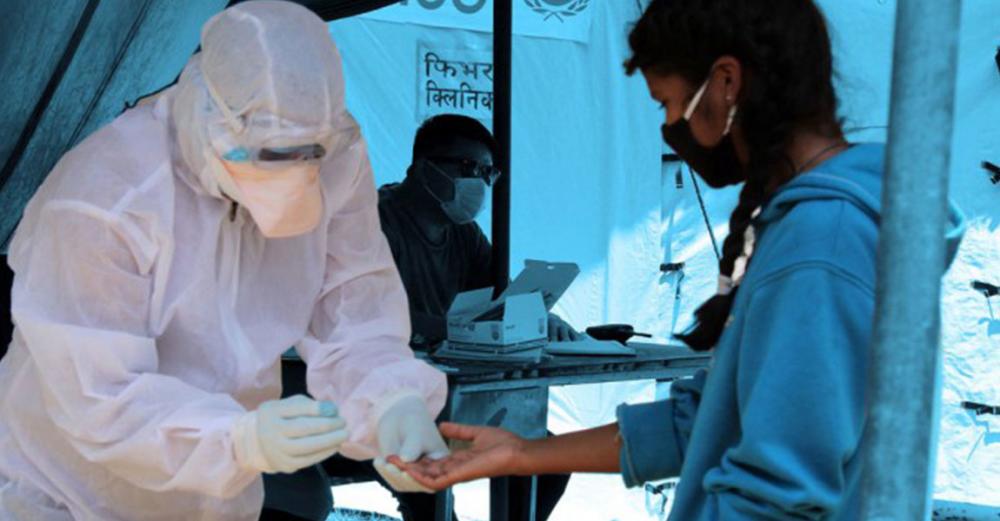Just Earth News | @justearthnews | 28 Sep 2020, 11:11 pm Print

UNICEF Nepal
New York: With over one million lives having succumbed to COVID-19 globally, UN Secretary-General António Guterres said that while the “agonizing milestone” is a “mind-numbing figure”, the world must never lose sight of each and every individual life.
“They were fathers and mothers, wives and husbands, brothers and sisters, friends and colleagues,” he said in a statement on Monday.
The pain has been multiplied by the “savageness” of the disease, the Secretary-General added, noting that the risk of infection kept families from being with their loved ones, and the process of mourning and celebrating a life was often made impossible.
“How do you say goodbye without holding a hand, or extending a gentle kiss, a warm embrace, a final whisper ‘I love you’?”
At the same time, still there is no end in sight to the spread of the virus, the loss of jobs, the disruption of education, the upheaval to our lives, said Mr. Guterres.
‘We can overcome’
However, we can overcome this challenge, he urged, underlining the need to “learn from the mistakes”
“Responsible leadership matters. Science matters. Cooperation matters – and misinformation kills. As the relentless hunt for a vaccine continues – a vaccine that must be available and affordable to all – let’s do our part to save lives,” said Mr. Guterres.
“As we remember so many lives lost, let us never forget that our future rests on solidarity —as people united and as united nations.”
New rapid diagnostic test for COVID-19
Meanwhile, a new COVID-19 diagnostic test, which can provide reliable results quickly, at a lower price and with less sophisticated equipment, will help expand capacity to detect cases in low- and middle-income countries, the UN World Health Organization (WHO) has announced.
Through agreements between WHO and partners, 120 million such tests will be made available to these countries, over a period of six months.
“This will enable the expansion of testing, particularly in hard-to-reach areas that do not have lab facilities or enough trained health workers to carry out PCR tests,” WHO Director-General Tedros Adhanom Ghebreyesus said at a media briefing on Monday, adding that it would be “a vital addition” to countries’ testing capacity and is especially important in areas of high transmission.
“The quicker COVID-19 can be diagnosed, the quicker action can be taken to treat and isolate those with the virus and trace their contacts,” said Mr. Tedros. The tests – antigen rapid diagnostic tests (Ag RDTs) – priced at a maximum of $5 per unit, are easy to use and highly portable, and provide reliable results in approximately 15 to 30 minutes – substantially faster as well as cheaper than polymerase-chain reaction (PCR) tests, according to WHO.
With agreement and seed funding already secured, the need now is the full amount of funds to buy the tests, stressed the WHO Director-General.
- New hybrid Mpox strain surfaces in UK and India — WHO sounds global alert
- Deadly weight: Obesity now responsible for 1 in 10 infection deaths worldwide
- Coffee and tea: This everyday drink may help protect your brain from dementia
- Happy Chocolate Day! The sweet secret behind chocolate’s hidden benefits
- Cambridge study finds menopause affects memory, mood, and sleep





-1763561110.jpg)
